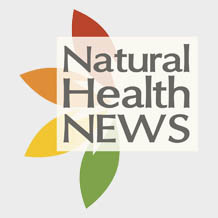
More evidence that low-calorie sweeteners are bad for your health
Studies show that artificial sweeteners can raise the risk of hypertension, metabolic syndrome, type 2 diabetes and heart disease, including stroke.

Upping your zinc consumption through diet could help protect your DNA from the wear and tear of oxidative stress and inflammation.
Zinc is an essential part of nearly 3,000 different proteins, and it impacts how these proteins regulate every cell in our body. The micronutrient is required for many biological processes, including growth and development, neurological function and immunity. It is naturally found in protein-rich foods such as meat and shellfish, with oysters among the highest in zinc content.
Deficiency of the micronutrient is a global problem and not getting enough zinc can impact role in your body, from wound healing to your perceptions of taste and smell to the synthesis of protein and DNA.
Zinc supports the production of the sex hormone testosterone. It also has an immune boosting effect, helping to balance your body’s response to infection, by controlling inflammation. Similarly a 2013 review suggested that, if taken within 24 hours of the appearance of symptoms, it may even help shorten the duration of a cold.
» Zinc deficiency is a global problem.
» A new, albeit small, study has found that modestly increasing dietary zinc could help prevent and even repair DNA strand breaks and reduce inflammation.
» This is important since DNA strand breaks can be a precursor to cancer, as can out of control inflammation.
Just A modest increase
The small randomised, controlled, six-week study published in the American Journal of Clinical Nutrition, is said to be the first to show that a modest increase in dietary zinc reduces oxidative stress and damage to DNA.
It involved 18 men consuming a diet containing 6mg of zinc per day for two weeks, followed by four weeks of consuming a diet containing 10mg of zinc per day.
It’s important to note that this was a low zinc diet since the RDA for zinc for adults is 8mg for women and 11mg for men.
As dietary zinc increased DNA strand breaks in leukocytes (which in some cases can lead to cancer) decreased. The dietary zinc increase also restored the level of proteins involved in DNA repair and antioxidant and immune functions.
Interestingly these benefits were seen even though the extra zinc did not appear to change blood levels of zinc or its total concentration in the body. This suggests that how we evaluate zinc levels may be in need of a rethink
“We were pleasantly surprised to see that just a small increase in dietary zinc can have such a significant impact on how metabolism is carried out throughout the body,” said lead researcher Dr Janet King, Senior Scientist at UCSF Benioff Children’s Hospital Oakland Research Institute (CHORI).
“These results present a new strategy for measuring the impact of zinc on health and reinforce the evidence that food-based interventions can improve micronutrient deficiencies worldwide.”
Opening a door for GMOs?
The study concluded that 4mg increase was equivalent to what could be achieved through biofortification of wheat and rice crops. Biofortification may or may not involve genetic engineering – the authors are not clear in their definition. However, biofortified wheat and zinc are still largely in an experimental stage.
Biofortified rice and wheat are especially targeted at developing nations where zinc levels are even lower than in the developed world. It has not been proven that this is the best way to tackle malnutrition in these areas – a number of indigenous grains such as millet, rye, buckwheat, amaranth, as well as most pulses, are very high in zinc, though farmers in these countries are often encouraged to abandon growing these in favour of growing crops more acceptable to Western markets. In addition, nutritionally rich crops can be produced through normal plant breeding.
Certainly in the West and we don’t need biofortification or genetic engineering to get extra zinc in our daily diets.
Getting more naturally
You can get 4 mg of zinc through supplementation (it’s best if you take zinc as part of a multivitamin/mineral supplement) or by including more zinc rich foods.
Oysters are exceptionally rich in zinc. A serving of 6 raw oysters will give you around 76mg of zinc. If you don’t like them raw 6 smoked oysters from a can will give you around 44mg zinc – both well above the recommended daily requirement.
Beef and lamb (and to a lesser extent pork and poultry are also rich in zinc. So, for example, 100g of red meat or liver will provide around 5mg of zinc, while 100g of pork or turkey will provide around 4 mg. Eating 50g of dark chocolate will provide 5mg zinc, while 100g of kidney or lima beans or chickpeas will provide 3-4mg of zinc.
A 100g serving of brown rice naturally contains 3mg of zinc and 1 egg will provide 2mg of zinc in the yolk. Most nuts and seeds are also zinc rich but higher in calories. Adding a sprinkle to cereals, salads, breads and smoothies, though will help keep you intake up.

Please subscribe me to your newsletter mailing list. I have read the
privacy statement